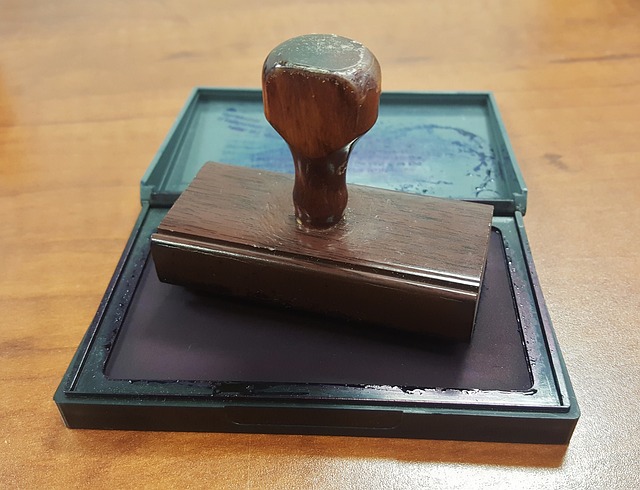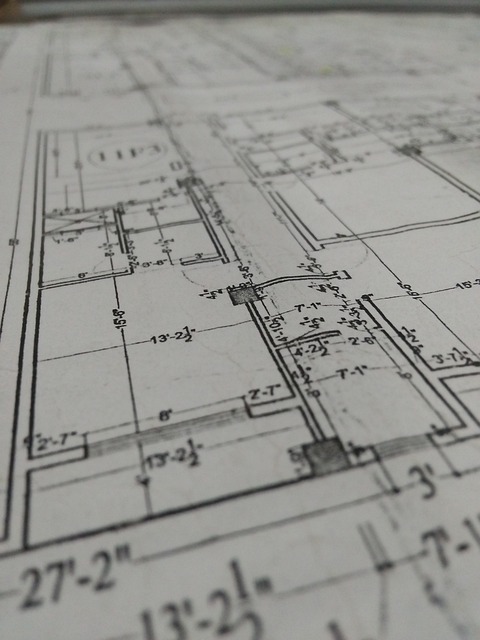When entrusted with the official capacity of a notary, professionals are tasked with upholding rigorous standards of accuracy and integrity in document certification. The stakes are high, as notary malpractice can lead to significant legal and financial ramifications. To safeguard against such outcomes, it is imperative for notaries to understand their responsibilities and the associated risks. This article delves into the essential components of notary law and ethics, highlighting the importance of professional liability insurance—commonly known as Errors and Omissions (E&O) insurance—in mitigating potential claims arising from errors or omissions in notarial acts. Additionally, the role of a notary bond is examined as a means to ensure accountability and maintain public trust. By exploring these critical aspects, notaries can effectively navigate their legal liability and protect their practices, ensuring they fulfill their duties with confidence and professionalism.
- Understanding Notary Malpractice: Risks and Repercussions
- The Importance of Notary Responsibilities in Document Certification
- Navigating Legal Liability in Notarial Acts: A Closer Look
- Notary Claims: How Professional Liability Insurance Offers Protection
- Essential Components of Notary Law and Ethics
- Safeguarding Your Practice with Errors and Omissions (E&O) Insurance
- The Role of a Notary Bond in Ensuring Professional Accountability
Understanding Notary Malpractice: Risks and Repercussions

Notary malpractice encompasses a range of errors or intentional acts that can compromise the integrity of notarial acts, leading to significant legal and financial repercussions for notaries. These may include misrepresentation of facts during document certification, mishandling of critical information, or failure to adhere to notary laws and ethics. Notaries are entrusted with responsibilities that go beyond mere signature witnessing; they must verify identities, administer oaths, and ensure the authenticity of documents. The stakes are high due to the legal liability associated with these duties. A single act of negligence or omission can result in professional and personal damage, including lawsuits, disciplinary action, and reputational harm.
To safeguard against such risks, notaries must understand their exposure to claims and invest in comprehensive liability insurance, which includes coverage for Errors and Omissions (E&O). This type of insurance is tailored to the specific liabilities inherent in notarial acts. It provides financial protection against claims that may arise from alleged errors or omissions during the performance of a notary’s duties. Additionally, obtaining a notary bond underscores a commitment to upholding legal and ethical standards within the profession. This bond can also serve as a guarantee of the notary’s adherence to the law, providing an extra layer of security for both the notary and their clients. By securing liability insurance and a notary bond, professionals in this field can effectively manage the complexities of their role, ensuring the protection of the public and maintaining the trust that is central to their professional responsibilities.
The Importance of Notary Responsibilities in Document Certification

Notary responsibilities encompass a range of critical duties that underpin the integrity and reliability of document certification. These duties are governed by notary law, which outlines the strict protocols notaries must follow to ensure the authenticity of documents they notarize. The process of notarial acts is more than a formality; it serves as a safeguard against fraudulent activities and upholds the legal system’s credibility. Notaries are entrusted with the responsibility to verify the identities of individuals signing documents, witness their signatures, and attest to the willingness and ability to sign voluntarily. The importance of this role cannot be overstated, as errors or omissions in these critical functions can lead to significant legal liability. To protect against potential notary claims arising from such liabilities, obtaining liability insurance is imperative. Liability Insurance, also known as Errors and Omissions (E&O) insurance, provides financial security for notaries against claims of negligence or improper conduct in the execution of their duties. It offers a safety net that can cover legal fees, settlements, or judgments resulting from such claims. Furthermore, a notary bond serves as an additional guarantee of the notary’s commitment to adhering to legal and ethical standards. This bond is a contractual agreement that can compensate those harmed by the notary’s misconduct, reinforcing the trust placed in their services and the importance of their role in document certification. By understanding the weight of their responsibilities and securing the necessary insurance coverage, notaries can effectively manage the complexities inherent in their profession and continue to serve as cornerstones of legal documentation integrity.
Navigating Legal Liability in Notarial Acts: A Closer Look

Notaries play a pivotal role in the verification and authentication of documents, a task that carries significant notary responsibilities. As they attest to the identity of individuals and the legitimacy of documents, notaries must navigate their legal liability with diligence and care. A single oversight or misstep can lead to notary claims against them, which is why understanding one’s legal liability is paramount. Notary law is explicit in outlining the duties and ethical standards expected of notaries, ensuring the integrity of document certification. To safeguard against potential notary claims arising from errors or omissions during notarial acts, it is crucial for notaries to secure liability insurance tailored for their profession. This Liability Insurance serves as a financial safeguard, offering protection against legal liabilities and unforeseen circumstances that could result in substantial financial loss. It also provides peace of mind, allowing notaries to perform their duties with greater confidence and assurance. Additionally, a Notary Bond is often required, reinforcing the commitment to upholding notarial standards and the trust placed in their services. This bond ensures that the notary’s actions align with both legal and ethical notary laws, further protecting the parties involved in document certification. By recognizing the importance of liability insurance and adhering to the ethical principles of their profession, notaries can effectively manage their legal liability, thereby maintaining the trust and integrity of their role within the legal system.
Notary Claims: How Professional Liability Insurance Offers Protection

Notaries play a critical role in the certification of documents, which often carry significant legal weight. The responsibilities inherent in notarial acts demand a high level of accuracy and ethical conduct. When performing their duties, notaries are exposed to potential claims arising from alleged errors or omissions during document certification. Such claims can lead to costly legal proceedings, even if the notary’s actions were within the scope of notary law and adhered strictly to notary ethics. This is where Liability Insurance becomes indispensable. It provides financial protection against claims that may arise due to allegations of negligence or improper performance of notarial acts. With this coverage, notaries can navigate the complexities of their role with greater confidence and security, knowing that they have a safety net in place to mitigate the risks associated with their professional activities. The insurance serves as a safeguard against the legal liability that comes with the authority bestowed upon notaries. It ensures that notaries are not personally liable for certain types of claims, thereby upholding both the legal and ethical standards expected of them, and the trust placed in their services by clients seeking to have documents notarized.
Essential Components of Notary Law and Ethics

Notaries play a pivotal role in the legal system, serving as impartial witnesses to the signing of important documents. The essence of their role lies within the meticulous execution of notarial acts, which are governed by Notary Law and Ethics. These legal frameworks dictate Notary Responsibilities, emphasizing the importance of accuracy, impartiality, and integrity in Document Certification. Notaries must adhere to stringent standards to ensure the validity and authenticity of each notarized document, which includes verifying the identity of the signatories, administering oaths or affirmations, and recording the details of each notarial act. Understanding and fulfilling these duties is paramount, as any deviation can lead to Notary Claims against them, potentially resulting in Legal Liability. To safeguard against such risks, obtaining Liability Insurance, also known as Errors and Omissions (E&O) insurance, is essential. This coverage not only protects the notary from financial loss due to claims arising from errors or omissions but also provides a safety net that supports their adherence to Notary Law and Ethics. It serves as a testament to the notary’s commitment to upholding the highest standards in their professional practice, thereby reinforcing public trust and confidence in the notarization process.
Safeguarding Your Practice with Errors and Omissions (E&O) Insurance

Notaries public serve a critical role in the certification of documents, witnessing signatures, and administering oaths, thereby upholding the integrity of legal processes. As with any professional duty, the responsibilities inherent in notarial acts come with an accompanying liability. This is where Liability Insurance, specifically Errors and Omissions (E&O) Insurance, becomes indispensable. E&O insurance safeguards notaries against potential claims arising from alleged or actual errors and omissions during the performance of their duties. It provides a financial safety net for legal defense costs and any damages that may be awarded against a notary should a mistake occur in the document certification process.
Understanding the importance of this coverage is paramount, as even a single error can lead to significant legal liability. Notaries must be acutely aware of their obligations under Notary Law, which dictates the ethical and legal standards they are expected to adhere to. E&O insurance acts as a shield against claims that may arise from breaches in these duties or deviations from notary ethics. It ensures that notaries can continue to operate with confidence, knowing that their professional Liability Insurance has them covered in the event of a claim due to an oversight in their notarial acts. This coverage is crucial for maintaining trust in the notarization process and for protecting the personal assets of the notary from being depleted by legal fees or settlements associated with such claims.
The Role of a Notary Bond in Ensuring Professional Accountability

Notaries public serve as official witnesses to the authenticity of documents and signatures, fulfilling critical roles in a wide array of legal and financial transactions. Their notarial acts are bound by stringent laws and ethical standards that dictate their responsibilities and duties. A Notary Responsibilities misstep can lead to significant Legal Liability, which is why it’s imperative for notaries to safeguard themselves against potential Notary Claims through comprehensive Liability Insurance. This form of insurance, specifically designed for the profession, shields notaries from the financial ramifications of errors or omissions during Document Certification processes. It ensures that notaries can navigate their duties without undue fear of personal financial ruin should a claim arise.
Furthermore, a Notary Bond complements the protective measures offered by Liability Insurance by reinforcing the notary’s commitment to upholding the law and maintaining high ethical standards. The bond is a form of guarantee that the notary will perform their duties with integrity and due care. It serves as a promise to adhere to Notary Law and protect the interests of those who rely on their services. This bond is a testament to the notary’s dedication to their profession, providing an additional layer of trust and assurance for clients. By securing both Liability Insurance and a Notary Bond, notaries can effectively manage their professional risks and ensure they are held accountable for their Notarial Acts, thereby upholding the trust placed in them and maintaining the integrity of their practice.
In conclusion, the role of a notary extends beyond mere document certification; it encompasses significant notary responsibilities that necessitate a thorough understanding of legal liability and adherence to notary laws and ethics. The potential for notary malpractice is real and can lead to severe legal and financial repercussions. To safeguard against such risks, investing in liability insurance is crucial. This coverage, specifically tailored as Errors and Omissions (E&O) insurance, provides critical protection for notary claims, ensuring that notaries are prepared should they face allegations of errors or omissions in their notarial acts. Moreover, a notary bond underscores the commitment to uphold professional standards and accountability within the field. By securing both E&O insurance and a notary bond, notaries can effectively manage the complexities of their profession and maintain the trust of the public. It is an essential step in ensuring that notaries fulfill their duties competently and responsibly.



